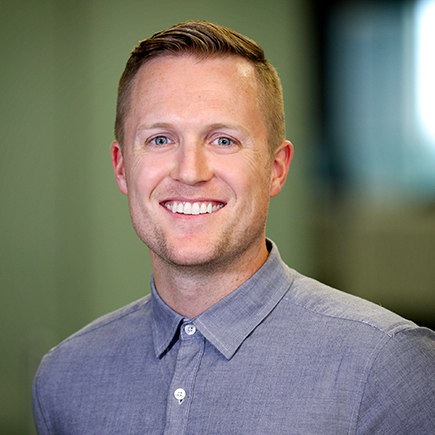Interview with Podium’s CEO Eric Rea
This article is part of a series featuring business executives who choose to live and work in Utah. If you know of an executive we should interview, please contact us.
In 2014, Eric Rea, co-founder of Podium, created an innovative approach for companies to connect conveniently with customers at critical touchpoints. By facilitating millions of customer interactions, such as providing customer feedback and online reviews, Podium is revolutionizing the way customers connect with businesses. His company serves more than 27,000 businesses and helps them facilitate over five million monthly interactions with their customers.
Originally from Calgary, Canada, Rea came to the United States to attend Brigham Young University. After graduating in information systems, he briefly worked for the United Nations in the International Atomic Energy Administration in Vienna, Austria. However, being an entrepreneur at heart, working for one of the largest bureaucracies in the world didn’t line-up with his life ambitions, so he returned to Utah and started Podium.
How did you get started in the industry?
Over the last decade, consumer communication channels have dramatically changed, and local businesses were ill-equipped to handle those changes. Working out of an extra bedroom in my apartment, I started developing a prototype that streamlined the customer interaction process and went door-to-door marketing it. My co-founder and I quickly realized we created a product local businesses desperately needed.
In our first year, we hired five employees and moved into the attic of a bike shop that had no heating or air conditioning. In the next three years, we became the leading interaction management platform for local business. This last year, we moved into our 125,000 square foot headquarters building in Silicon Slopes.
What top two recent professional accomplishments are you most proud of?
Podium’s growth in the past four years has placed us among one of the fastest growing SaaS (Software-as-a-Service) technology companies in history. We received the distinctions of being one of the youngest companies on Forbes’ Cloud 100 list and being named one of Forbes’ Next Billion Dollar Startups.
However, most importantly, it’s incredibly exciting to see our team grow. We have grown to a robust team of 415 employees in a beautiful state-of-the-art building. When I step back and see the impact Podium is having on the lives of our hardworking employees, it’s incredibly rewarding.
What drew you to Utah?
Initially, it was BYU. I got an incredible education there and gained an understanding of what it meant to be from Utah. Utah is one of the best places for technology companies to find success. We have transitioned from being a tech “hot spot” to one of the world’s largest technology capitals.
What do you like most about living in Utah?
The fact that I can ski double-digit days every year, and still responsibly run a fast-growing startup is unique. The opportunities to be outside, being within driving distance of five national parks, is something you can’t get anywhere else. The work-life balance is unparalleled, and it’s part of the “secret sauce” that makes it easier to bring your “A” game to work.
What do you like most about doing business in Utah?
The technology community here is very supportive and inclusive. Business leaders in Utah have banded together and are more competitive with other technology capitals, such as Silicon Valley. It results in a “rising tide lifts all boats” mentality, which is incredible. There are a lot of willing mentors looking to help in any way they can.
What advice do you have for individuals considering starting a business, or relocating their business, to Utah?
Just do it. We have the talent, access to capital, great mentors and an overall business-friendly environment. You won’t find more fertile ground to realize your potential and for great ideas to turn into something amazing.
What’s your primary challenge of doing business in Utah?
The industry is nurturing talent in roles geared to later-stage technology companies because we haven’t had as high of a demand for mid-level and senior positions. Now, that there is a demand, we are working harder to attract and retain more specialized roles.
Tell me a fun fact about yourself.
My first job was washing dishes at a golf course. They made me jump in a dumpster and spray it out with a pressure washer. I’m so thankful I found a different career path.

is revolutionizing the way customers connect with businesses.
To learn more about Eric, check out his LinkedIn profile.
